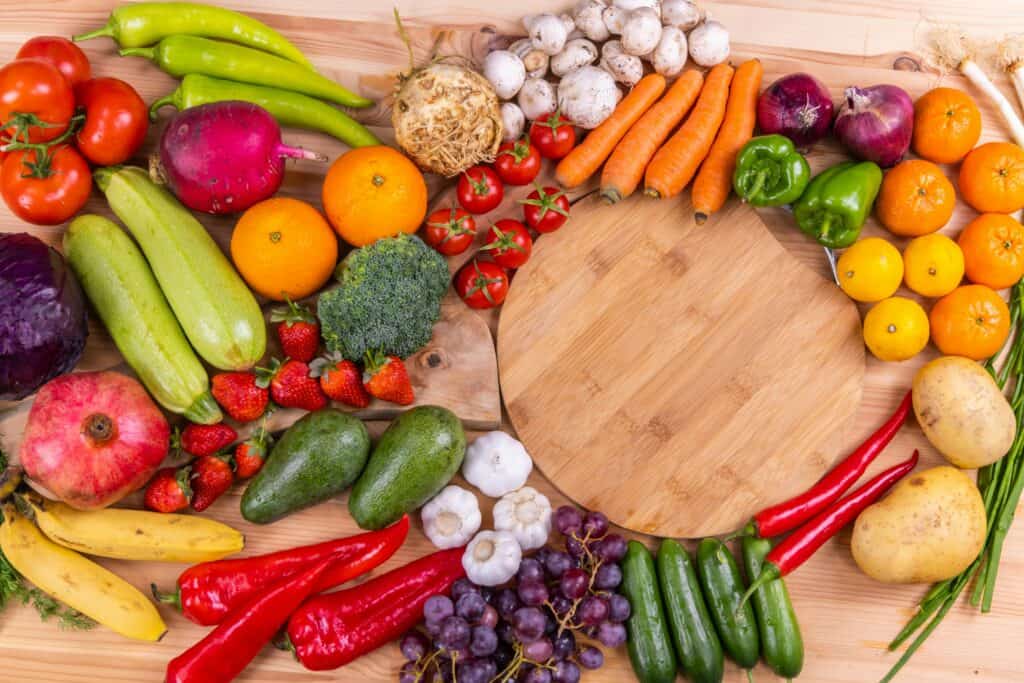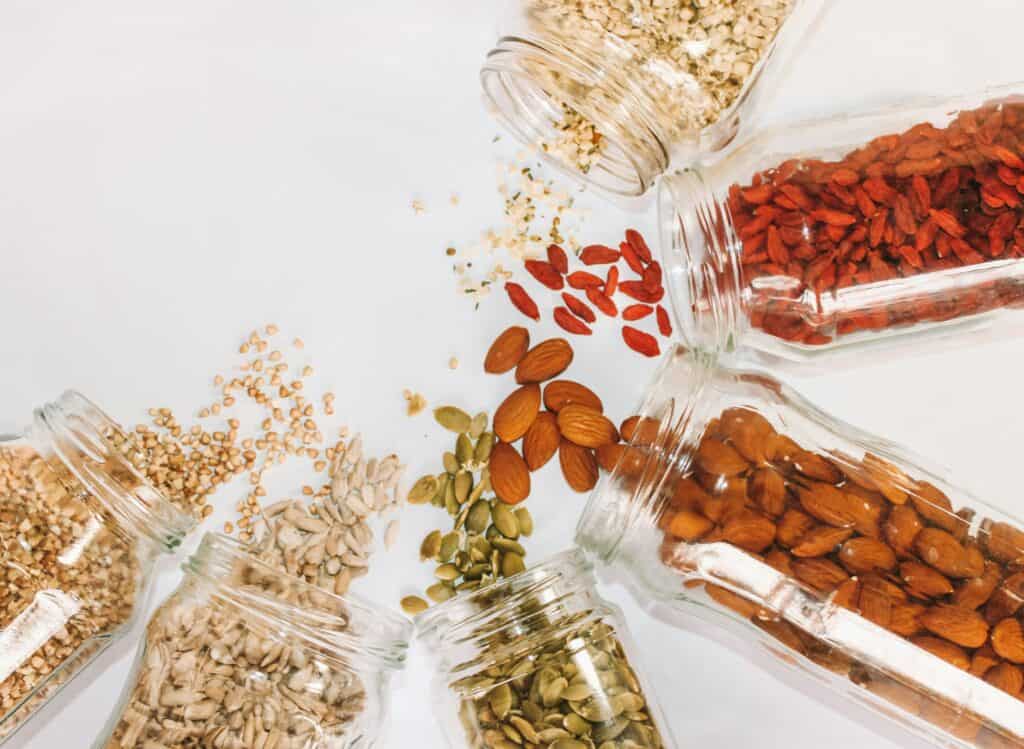Looking for a comparison of the cost of a vegan diet vs. a meat-based diet? When it comes to following a diet, cost is an important factor to consider. Some people believe that a vegan diet is more expensive than a meat-based diet, but is that really true? In this post, we will compare the cost of a vegan diet versus a meat-based diet to see which one is more budget-friendly.
Cost Comparison of Vegan Diet vs. Meat-Based Diet
Eating a healthy and balanced diet is essential for good health. However, the cost of food can vary widely, depending on the type of diet you follow. In this table, we compare the cost of a vegan diet vs. a meat-based diet, based on the average cost of groceries in the United States. In this comprehensive analysis, we delve into the comparison of a vegan diet versus a meat-based diet.
Drawing insights from authoritative sources such as the U.S. Bureau of Labor Statistics and the National Nutrition Survey. The averages obtained from these sources form the basis for a nuanced exploration of daily caloric intake, protein sources, and associated costs.

Comprehensive Diet Comparison
For the purpose of this comparison, we’ve based our averages on an assumed individual with the following characteristics:
Assumed Characteristics:
- Age: 30 years
- Weight: 150 pounds
Cost and Nutritional Comparison:
| Item | Vegan Diet | Meat-Based Diet |
|---|---|---|
| Daily Calories | 2100 | 2600 |
| Daily Protein (grams) | 92 | 140 |
| Protein Source | Lentils, Chickpeas, Tofu | Chicken, Beef, Pork |
| Produce | Veggies, Fruits, Grains | Veggies, Fruits, Grains |
| Dairy Substitute | Almond Milk, Soy Milk | Cow Milk |
| Meat Substitute | Seitan, Tempeh | Ground Beef |
| Cost per Meal (3 meals/day) | $2.50 | $4.00 |
| Weekly Cost (3 meals/day) | $22.50 | $42.00 |
| Monthly Cost (3 meals/day) | $90.00 | $168.00 |
Detailed Cost Breakdown:
Vegan Diet:

| Food Category | Daily Cost | Daily Protein (grams) | Weekly Cost | Weekly Protein (grams) | Monthly Cost | Monthly Protein (grams) |
|---|---|---|---|---|---|---|
| Protein Sources | $1.50 | 30 | $10.50 | 210 | $42.00 | 840 |
| Produce | $5.00 | – | $35.00 | – | $140.00 | – |
| Dairy Substitute | $3.00 | 16 | $21.00 | 112 | $84.00 | 448 |
| Meat Substitute | $13.00 | 46 | $91.00 | 322 | $364.00 | 1288 |
| Total | $22.50 | 92 | $157.50 | 644 | $630.00 | 2576 |
Meat-Based Diet:

| Food Category | Daily Cost | Daily Protein (grams) | Weekly Cost | Weekly Protein (grams) | Monthly Cost | Monthly Protein (grams) |
|---|---|---|---|---|---|---|
| Protein Sources | $8.00 | 68 | $56.00 | 476 | $224.00 | 1904 |
| Produce | $5.00 | – | $35.00 | – | $140.00 | – |
| Dairy | $3.00 | 16 | $21.00 | 112 | $84.00 | 448 |
| Meat | $26.00 | 56 | $182.00 | 392 | $728.00 | 1688 |
| Total | $42.00 | 140 | $294.00 | 980 | $1176.00 | 4040 |
Healthy Protein Intake:
How much protein is healthy per day? Anywhere from 10% to 35% of your calories should come from protein. So if your needs are 2,000 calories, that’s 200–700 calories from protein or 50–175 grams. The recommended dietary allowance to prevent deficiency for an average sedentary adult is 0.8 grams per kilogram of body weight.

Cost Comparison of Animal-Sourced, Processed Vegan, and Whole-Food Vegan Alternatives
Here, we’ve compared several widely consumed animal-based food items with their respective commercial vegan alternatives and common whole-food vegan substitutes. This chart with show the amount spent on the average grocery bill buying vegan food vs a meat-based diet.
There is a significant difference in food prices when comparing plant-based meat with whole foods such as dried beans and tofu. This shows how although meat replacements can provide enough protein, this can lead to increased spending at the grocery store. Choosing more whole-food plant based proteins can lead to significant savings.

| Food Type | Animal Sourced | Processed Vegan Alternative | Whole-Food Vegan Alternative |
|---|---|---|---|
| Meat | |||
| Beef | $4 to $20 per pound | Impossible Burger – $9 per pound | Dried Beans – $1.50 per pound |
| Pork | $4 to $7 per pound | Beyond Meat Sausages – $11 per pound | Canned Beans – $1.10 per 15 oz |
| Chicken | $1.50 to $5 per pound | Quorn Chicken Nuggets – $8.50 per pound | Tofu – $2.50 per pound |
| Fish | |||
| Salmon | $8 per pound | Gardein F’sh Filets – $7.60 per pound | Seaweed – $5 per 2 oz |
| Tuna (canned) | $3.15 per 8 oz | Good Catch Fish-Free Tuna – $15.30 per 8 oz | Tofu – $2.50 per pound |
| Dairy | |||
| Milk | $4.40 per gallon | Commercial Almond Milk – $4 per 64 oz | Almonds – $2.20 per 1 ½ cups (makes 64 oz almond milk) |
| Cheese | $5.90 per pound | Vegan Cheese Alternative – $4.50 per 8 oz | Nutritional Yeast – $3.75 per 4 oz |
| Yogurt | $1.50 per 8 oz | Non-Dairy Yogurt – $4.20 per 8 oz | |
| Eggs | |||
| Eggs | $3.59 per dozen | Just Egg Replacer – $4.50 per 12 oz | Ground Flaxseed – $1.40 per 3.6 oz (makes 12 vegan eggs) |
*Prices listed are averages for the US market.

The Cost of a Vegan Diet in 2024
Contrary to popular belief, a vegan diet can actually be very affordable. Fruits, vegetables, beans, and grains are all inexpensive and widely available. Plant-based protein sources such as tofu, tempeh, and lentils are also affordable and can be used in a variety of dishes. Buying these ingredients in bulk and meal prepping can also help reduce costs.
Recent research from Oxford University suggests that adopting a vegan, vegetarian, or flexitarian diet could slash your food bill by up to one-third in high-income countries.

In high-income countries like the US, the UK, and Australia, the study identifies clear economic advantages associated with sustainable diets:
- Vegan Diets: Stand out as the most affordable, reducing food costs by up to one-third.
- Vegetarian Diets: Follow closely, offering a cost-effective alternative.
- Flexitarian Diets: With low amounts of meat and dairy, result in a 14% reduction in costs.
- Pescatarian Diets: In contrast, increase costs by up to 2%.
Individuals who have embraced sustainable diets share compelling stories of financial savings.
“Without doubt, vegan and vegetarian meals consistently come in at a much lower price than recipes with meat.” Miguel Barclay, author of the ‘One Pound Meals’ series
Personal testimonials reinforce the notion that making sustainable food choices not only benefits your health but also your wallet.
The Cost of a Meat-Based Diet
On the other hand, a meat-based diet can be more expensive. Meat is often the most expensive item in a grocery cart and can quickly add up. Additionally, meat-based meals often require more preparation time and ingredients, which can further drive up costs.
Environmental Impact
In addition to cost, it’s important to consider the environmental impact of a meat-based diet. Animal agriculture is a major contributor to greenhouse gas emissions, deforestation, and water pollution. Choosing a plant-based diet can help reduce your carbon footprint and support sustainable food systems.

Health Benefits
Aside from cost and environmental impact, a vegan diet can also offer numerous health benefits. A plant-based diet has been shown to lower the risk of heart disease, type 2 diabetes, and certain types of cancer. Additionally, a vegan diet can be rich in vitamins, minerals, and antioxidants.
Recent research, as published in Lancet Planetary Health, sheds light on the significant economic and health benefits of adopting a low-fat vegan diet. Led by Dr. Marco Springmann, Director of Clinical Research at the Oxford Martin Programme on the Future of Food, this study examined participants’ dietary records to assess the impact of dietary changes, including increased consumption of whole grains and dairy alternatives, on weight loss, grocery bills, and overall health.

The findings indicate a significant decrease in total food costs among vegan households, particularly in low-income countries where economic development and sustainable dietary patterns are essential. This groundbreaking study underscores the importance of responsible medicine and dietary change, offering good news for those seeking to improve their health and finances while reducing their consumption of animal products.
Recent Research
In light of this recent research, the benefits of embracing a vegan lifestyle extend beyond individual health improvements to include significant positive impacts on household finances and global sustainability. By prioritizing plant-based foods and reducing reliance on animal-based protein sources such as chicken breasts and dairy products, individuals can effectively lower their grocery bills while contributing to the reduction of food waste and environmental degradation.

Moreover, the findings underscore the importance of supporting ongoing research efforts, such as those led by Dr. Marco Springmann and study co-author Hana Kahleova, to further understand the potential health benefits and economic advantages of adopting a plant-based diet. This evidence-based approach aligns with recommendations from organizations like the Physicians Committee and the Agriculture Organization of the United Nations, highlighting the importance of promoting plant-based meals as a better option for both personal health and planetary well-being.
As more individuals make dietary changes towards a plant-based meal plan, the collective impact on health care costs and regional economies, particularly in lower-income countries and regions like Sub-Saharan Africa, could be significant.
Conclusion: Cost Of A Vegan Diet Vs. A Meat-Based Diet in 2025
In conclusion, a vegan diet can be just as affordable, if not more so, than a meat-based diet. By choosing plant-based protein sources and buying in bulk, you can save money while also supporting a sustainable food system. Not to mention the potential health benefits of a plant-based diet. So, the next time you’re at the grocery store, consider the cost and environmental impact of the foods you choose to eat.

Source For Cost Of A Vegan Diet Vs. A Meat-Based Diet
Sources: U.S. Bureau of Labor Statistics, National Nutrition Survey.
Source:Springmann, M., et al. (Year). Title of the study. Lancet Planetary Health.
The information provided in this article is for general informational purposes only and should not be considered as professional advice. The dietary comparisons, water consumption estimates, and calorie intake suggestions are based on general estimates and may not be suitable for everyone.
Before making any significant changes to your diet, it is advisable to consult with a qualified health professional, nutritionist, or dietitian. Individual nutritional needs can vary based on factors such as age, gender, health conditions, and activity levels.
The author and publisher of this article are not responsible for any adverse effects or consequences resulting from the use or interpretation of the information presented herein. It is crucial to seek personalized advice and guidance from a healthcare professional to ensure that any dietary changes align with your specific health needs and goals.
Always prioritize your health and well-being, and seek professional advice when making decisions that may impact your diet and lifestyle.




I was disappointed that this article doesn’t mention how many daily calories and grams of protein each diet contained. Also, the vegan diet protein sources were specific while the meats were just categories, e.g. “chicken” rather than the pricey option “boneless skinless chicken breasts” making it easy to skew the economics towards vegan. The size and lifestyle of the hypothetical diet changer would help too, food will cost more for a 225 pound man active in sports than for a 100 pound woman executive. If this article gets updated it would be great to give examples of vegan vs. meat diet costs for different people sizes and activity levels.
Thank you so much for sharing your feedback! We truly appreciate your thoughtful insights. We understand your concern about the article’s details on daily calories, grams of protein, and the specificity of protein sources.
We hear you, and we’re committed to enhancing the article by including more controlled variants in our upcoming updates. Your suggestion to provide examples for different people sizes and activity levels is excellent, and we’ll definitely incorporate that to offer a more comprehensive perspective.
Your input is invaluable, and it’s feedback like yours that helps us improve. We’re grateful for your engagement, and please stay tuned for the updated content. If you have any more suggestions or questions, feel free to share. Thanks again for being part of our community!